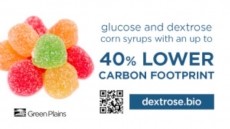Dark chocolate linked to lower risk of heart disease
Consumption of small or moderate amounts of dark chocolate was associated with a decrease in the risk of CVD by 33 per cent amongst women and 26 per cent amongst men, according to findings published in this month’s Journal of Nutrition.
Scientists working on the Moli-sani Project in Campobasso, which investigates factors responsible for cardiovascular disease (CVD) and tumours, link the apparent heart health benefits to lower levels of serum C-reactive protein (CRP). CRP is a protein used as an indicator of inflammation, which is itself a major risk factor in the development of coronary heart disease.
The Italian scientists claim that theirs is the first study to show the effect of dark chocolate on CRP.
“We started from the hypothesis that high amounts of antioxidants contained in the cocoa seeds, in particular flavonoids and other kinds of polyphenols, might have beneficial effects on the inflammatory state,” said Romina di Giuseppe, lead author of the report. “Our results have been absolutely encouraging: people having moderate amounts of dark chocolate regularly have lower levels of C-reactive protein in their blood. In other words, their inflammatory state is considerably reduced.”
According to the World Health Organisation (WHO), the various diseases classified as CVD, such as heart attacks, heart failure and hypertension regularly account for around 30 per cent of deaths worldwide, making CVD the world’s number one killer.
The consumption of chocolate has long been linked with improved heart health. Several studies have been carried out which suggest that the antioxidant properties of flavonoids have the potential to lower the risk of CVD. Cocoa beans contain several flavonoids, including the monomeric flavonols epicatechin and catechin, as well as oligomeric procyanidins.
Too much of a good thing
Di Guiseppe and her co-workers reported that consumers of dark chocolate had, on average, levels of CRP 17 per cent lower than non-consumers.
However, the study suggests that the positive effects on CRP levels are only seen when small quantities of dark chocolate are consumed. The benefits seem to disappear when consumption rises above an average of one serving of 6.7g every day. The report states: “Increasing the dose of chocolate would… lead to increased total energy and SFA [saturated fatty acid] intake that could oppose the beneficial effects of polyphenols on inflammation.”
The report goes on to say that due to the insignificant number of calories ingested from such an intake, the consumption of dark chocolate for its health benefits would have no adverse effects on BMI or waist:hip ratio.
Study details
About 5,000 people in good health and not suffering from any chronic disease were selected to take part in the study, from which 1,317 who never consumed any chocolate made up the control group and 824 who regularly consumed dark chocolate (and no other form of chocolate) were chosen for the test group. The control group had an average age of 53, a BMI of 27 and was made up of 51 per cent men. The test group had an average age of 50, a BMI of 26.5 and was made up of 55 per cent men.
The scientists carried out a food frequency questionnaire (FFQ) to assess dietary habits over the previous year. Chocolate intake was investigated with regard to frequency of consumption and type of chocolate. Amongst consumers of dark chocolate, the average intake was 5.7 grams per day. No measure of flavonoid intakes was reported.
Moreover, factors such as age, sex, social status, levels of physical activity and tobacco use were taken into account to ensure that they did not influence the results. Even after adjustment for these parameters had been made, the results showed an inverse relationship between consumption of dark chocolate and CRP concentration.
The scientists acknowledged the limitations of their study, such as possible underestimation of chocolate consumption by the participants and the at least partial contribution of an overall healthy lifestyle to decreased CRP concentration, even when adjustments are made to take this into account.
Being an observational study, the researchers did not investigate the potential mechanism behind the apparent effects. Further research should focus on elucidating this mechanism, concluded the researchers.
A growing body of science
Commenting independently on the research, Elle Mason, cardiac nurse from UK charity the British Heart Foundation (BHF), said: “This study adds to previous research which has shown that eating dark chocolate may have some benefits for our heart and circulatory health. However, it is important to remember that chocolate is often part of the problem for heart health rather than the solution, as it is high in saturated fat, which can contribute to your risk of heart disease.”
She recommended exercise and regular consumption of fruit and vegetables, whilst enjoying chocolate on an occasional basis, as a more effective method of maintaining a healthy heart.
Source: Journal of NutritionVolume 138, Issue 10, pp. 1939-1945 “Regular Consumption of Dark Chocolate Is Associated with Low Serum Concentrations of C-Reactive Protein in a Healthy Italian Population”Authors: R. di Giuseppe, A. Di Castelnuovo, F. Centritto, F. Zito, A. De Curtis, S. Costanzo, B. Vohnout, S. Sieri, V. Krogh, M.B. Donati, G. de Gaetano, L. Iacoviello
















